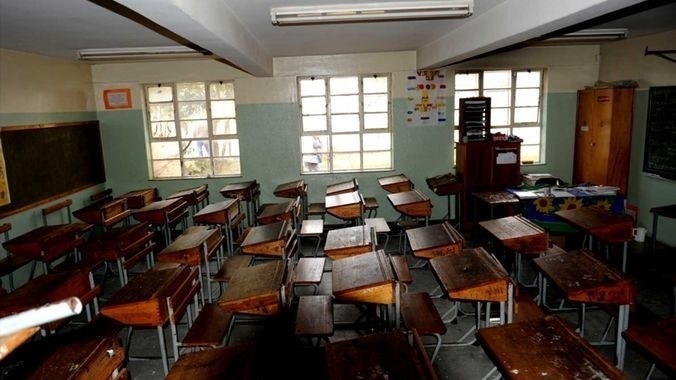
Kgomotso Gantsho chose to send her two children to a private school because she believes they offer consistent good quality education.
Gantsho (31), who lives in Johannesburg, believes that private schooling offers consistency in the quality of education and she wants her children’s school to provide them with future networking potential.
The government school system, she says, needs a drastic overhaul.
“While post-apartheid education was packaged as more inclusive and accessible through the abolishment of racial discrimination, quality education is still highly inaccessible to the majority of South Africans,” she says.
“A high calibre of teachers, good curriculum planning and teaching of relevant life skills as part of the teaching package – and extramurals tailored to children’s individual interests and in-house support centres with therapists and life coaches, to name but a few – remain a standard in many private schools and some urban public schools. These things are a privilege in many township and rural public schools.”
Gantsho is not the only one who thinks our education system needs an overhaul.
According to an international survey published a week ago, 82% of South African parents whose children study at fee-free schools believe they would be fairly likely or very likely to send their child to a fee-paying school if they could afford it and if there was an appropriate place available.
This was the second highest of any country surveyed after India (85%) and equal to Turkey.
The Global Parents’ Survey, commissioned in December last year by the Varkey Foundation – a non-profit organisation established to improve the standards of education for underprivileged children throughout the world, found that almost three-quarters (72%) of South African parents think standards of education have become worse in the past 10 years.
This was more than any other country surveyed.
Released on Friday last week, the survey also found that local parents also had the highest proportion (50%) of those who thought education had become a lot worse in the past 10 years.
The research, conducted by Ipsos Mori on behalf of the Varkey Foundation, interviewed 27 380 parents in 29 countries using an online survey between December 8 last year and January 15 this year.
For countries where internet penetration is low, researchers noted that the data was representative of the urban online population, which tends to be better educated and financially better off.
The survey results contain 1 000 interviews with parents from South Africa and from each of the other countries except Estonia (500), Kenya (501) and Uganda (371).
The survey polled parents of children aged between 4 and 18, who are at school, reflecting equal views from mothers and fathers.
Researchers say all countries contributed equally to the global average and the data were not adjusted for the relative size of the population.
The survey also found that:
. More than half (54%) of South African parents rate no-fee schools in the country as fairly poor or very poor – higher than any other country surveyed apart from Uganda (66%);
. Only a quarter (25%) of parents believed no-fee schools were good schools, well below the global average of 45%. However, when asked about the quality of teaching at their child’s school, 84% of local parents rated it as good;
. South African parents are the least concerned of all countries polled about health or disease when it comes to their children’s future, with only 11% listing it as among their top three anxieties;
. Almost a quarter of a century after the fall of apartheid, 34% of parents list discrimination and inequality as among their top three concerns about their child’s future – the highest of any country surveyed after South Korea (35%); and
. At least 39% of local parents are concerned about peer pressure and attitudes towards drugs, drinking and sex – the second highest of any country surveyed after Kenya (44%).
Unathi Fumba (40), a mother of two from the Free State, has her children studying in public schools because “I guess it is what we could afford”. She thinks South African teachers are “doing their best with what they have”.
For Eastern Cape resident Donovan Holmes (44), sending his two children to a public school meant that they would be able to “contextualise South Africans with an understanding and empathy for people from varied backgrounds”.
But he too believes our schooling system is in crisis.
“Children are not coping with the work they are being given and when they are assessed, they are falling helplessly short. Teachers are overwhelmed with work and they feel increasingly like their efforts are not paying off because academic results are not improving,” he said.




 Publications
Publications
 Partners
Partners








